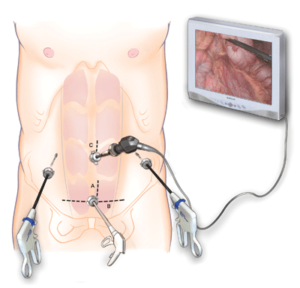11 Things You Need to Know About a Gastric Bypass Surgery
More than half of the Pakistan population is overweight
More people are now looking for weight loss treatment and bariatric surgery. According to the Global Burden of Disease study, published in The Lancet Medical Journal, the Pakistan has the third highest rate in Punjab: 67% of men and 57% of women are overweight or obese.
Gold standard of weight loss surgery
The Roux-en-Y gastric bypass is considered the “gold standard” of weight loss surgery and is the bariatric procedure that is performed most frequently worldwide.
What is gastric bypass surgery?
Gastric bypass surgery helps you lose weight by changing the way your stomach and small intestine manage the foods you eat.
After surgery, your stomach will be smaller. You will feel full with less food.
The food you eat will no longer enter some parts of your stomach and small intestine that break down food.
A gastric bypass is known as a restrictive operation, since it restricts food intake and the amount of calories and nutrients the body absorbs. In general, it is considered irreversible and permanently changes the way your body digests food.
What is involved in a gastric bypass?
“The stomach replacement occurs by lowering the stomach capacity, but also by dividing the course of food in the jejunum (part of the small intestine that we connect to the new stomach pack). full of you and usually keep you from starving, “said Mr. Ramus. “These are also the hormonal changes that lead to a great improvement in your insulin resistance and therefore improve your blood sugar control (conversely your diabetes).”
There are two steps during gastric bypass surgery:
Step 1 – Make your stomach smaller
Your surgeon will make your stomach smaller with staples. Your food intake will then be limited by a smaller stomach.
Step 2 – The bypass
Your surgeon will connect your smaller stomach to a portion of your small intestine, bypassing the rest of your stomach and some of your small intestine.
Roux-en-Y bypass (RNY) Procedure
The Roux-and-Y-Replacement procedure involves creating a gastric plug using staples from a small portion of the upper abdomen. It limits the amount of food you can eat. The lower part of the stomach that is no longer used is called the “blind” stomach. The pylorus is at the bottom of the “blind” stomach and is no longer used to control food that moves in the small intestine.
The upper stomach plug is attached directly to the small intestine, which bypasses a large portion of the stomach and the first part of the small intestine, called the duodenum. Food goes through the anastomosis (dressing) created between the bag and the small intestine, which is deliberately made quite narrow to keep food in the bag longer so you feel longer.
Laparoscopic or open surgery
Gastric bypass can be done in two ways under general anaesthesia:
a) Laparoscopic surgery
A small camera, a laparoscope, is placed in your stomach. First, your surgeon will make 4 to 6 small cuts in your stomach. Then your surgeon will pass the laparoscope through one of these cuts. It will be connected to a video monitor in the operating room. Your surgeon will look at the monitor to see in your stomach. Your surgeon will use thin surgical instruments to circumvent you. These instruments will be inserted through the other cuts.
b) Open surgery
Your surgeon will make a large surgical incision to open your stomach. Your surgeon will do the work by working on your stomach, small intestine and other organs.
Most bariatric procedures today are performed using minimally invasive techniques (laparoscopic surgery), with a small chance of switching to open surgery if necessary. Benefits of laparoscopy over open surgery include a shorter procedure and hospitalization, faster recovery, less pain, smaller lesions and a much lower risk of fracture or infection.
Am I eligible for a gastric bypass?
You will usually have a weight loss surgery if you cannot lose a large amount of weight and can switch it off by losing diet, changing your behavior and exercising alone; or if you have serious health problems caused by obesity.
Doctors often use body mass index (BMI) and health conditions such as diabetes, hypertension, sleep apnea, joint pain and depression to determine which patients are likely to benefit from weight loss surgery.
Your bariatric surgeon will discuss the best option for weight loss with you and if you are eligible for gastric bypass surgery.
The benefits of the gastric bypass surgery
Gastric bypass surgery is a highly effective weight loss procedure. Weight loss tends to be faster and more dramatic than other weight loss procedures. So if you are looking for a weight loss surgery that gives you the best chance of losing the most weight, then gastric bypass surgery can be your option.
In general, patients with gastric bypass will lose about 70 percent of their overweight, sleek gastrectomy patients will lose about 60 percent, and gastric patients will lose about 50 percent. 5 However, the amount of weight lost by each patient will depend on individual circumstances.
After a stomach reduction you will likely feel dramatically better with rapid improvements in obesity-affected conditions, such as diabetes and hypertension, high blood pressure, high cholesterol, asthma, arthritis, sleep apnea and heartburn. To weigh less, it also makes it much easier to move around and do your daily activities, to improve your quality of life.
Gastric bypass offers good long-term results and many people can keep most of the weight off.
What are the risks?
Gastric bypass is major surgery and therefore carries risks, some are very serious. You should discuss this with your surgeon.
The greatest risk with this type of surgery transforms the possibility of developing blood clots in your legs (deep vein thrombosis or DVT) and you have the highest risk in the first 6 weeks after surgery. However, compression stockings and the occasional use of a compression pump with blood diluents are used to prevent this from happening.
Complications that may occur
- Leakage at the many sites where the stomach and intestine are reconnected.
- stricture of openings in the small intestine.
- Dip your food into the intestines too quickly before it is properly digested, is common and can cause nausea and vomiting, bloating, dizziness, sweating and diarrhea. Dumping can also be seen as an advantage as it helps patients prevent weight gain from sugar and high-fat dumping foods.
- Rocks can develop after rapid weight loss
- Take care of your diet, take long-term vitamins and minerals to prevent the development of vitamin / mineral deficiency, and you may need nutrients in your blood to be monitored.
- Distension of the blind stomach. It is rare, but needs to be diagnosed and treated urgently.
Getting prepared for your gastric bypass
- If you are a smoker, stop smoking a few weeks before surgery and do not smoke again after surgery. Smoking slows down recovery and increases the risks of problems.
- You may be asked to stop taking drugs such as aspirin, ibuprofen (Advil, Motrin), vitamin E, warfarin (Coumadin) and any other drug that makes it difficult to solidify your blood. You should ask your doctor about the drugs you can still take on the day of your surgery.
- Prepare your home for the operation.
After gastric bypass surgery
Most patients can be returned home within 3 to 5 days after surgery. You can go home if you can move without much pain, and you can eat liquid or pureed food without frying.
Weight loss needs your commitment too
Gastric bypass surgery is not a magic wand for obesity. To lose weight and avoid complications of the procedure, you should follow exercise and eating guidelines given by your surgeon. This includes limiting the amount of food to about one cup per meal and how to prevent food shortages.
Careful follow-up and continuous motivation help prevent problems. Lifestyle changes after surgery can be the most difficult part of the recovery process. Patients who have the greatest success with any bariatric surgery, take moderate eating and exercise habits to maintain their weight loss over a long period of time.
Here you will find our guide prices for stomach bypass surgery
Read more weight loss surgery blog posts to find answers to the most common questions, including: Pre and cons of stomach balloon and stomach sleeve, how to choose a weight loss surgeon, exercise after weight loss surgery etc.
 Bloggers Trend Keeping You Up To Date
Bloggers Trend Keeping You Up To Date




